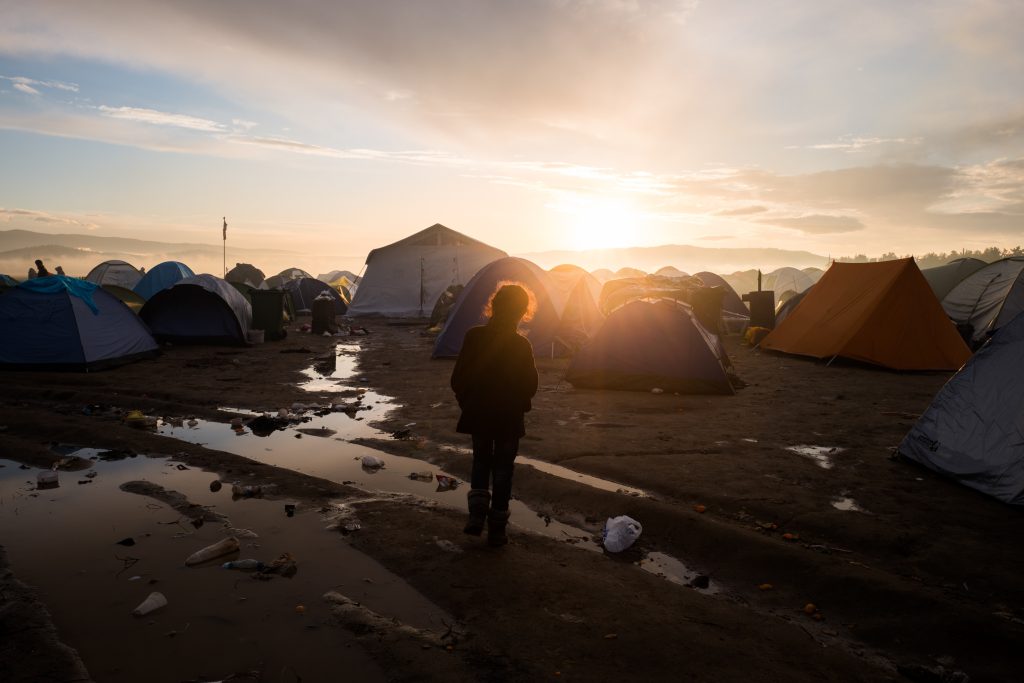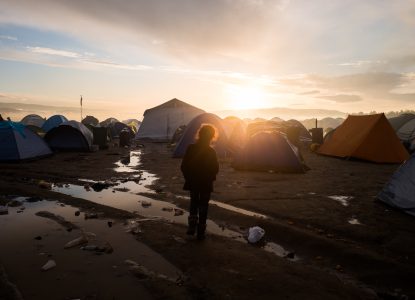by Elie Al Hindy – Executive Director of Adyan Foundation
– – –
Unfortunately, refugees’ issues are increasing rather than decreasing with time. It’s an issue worth reflecting on. Why are humans becoming more aggressive, more attached to their identities, and less willing to compromise, find common ground, and accept the other?
The religious, ethnic and cultural diversity of the world we are living in is a major reason for this failure. Or, to be clearer, it is how we deal with diversity that is the problem.
The Problem with Secularism and Globalism
I tend to agree with the theory that says the world has dismissed identity and identity politics too early. We thought that an extreme and sometimes even forced secularism would be the best antidote to religious extremism. We thought that globalization would be the best way to unite people around the world.
However, as a catholic from the Middle East, I tend to disagree with these premises. A secularism that is aggressively excluding or at least neglecting religious and other identities and identity politics is doomed to implode and cause reaction. A globalized world does not solve identity caused conflicts, it simply makes them international and makes their spill-over much further reaching.
As a result, refugees’ issues have gained a much bigger influence on the world scene, and can no longer be considered as local or even regional problems.

The Case for Inclusive Citizenship
Solutions based on human rights and the equal dignity of all human beings are the essence and the base of every potential solution, yet I argue that these principles alone are far from being enough. Any solution that aims at successfully addressing the issue of refugees needs to take into consideration, and maybe even be based on, the respect of religious and other identities, and on transforming these from a reason for conflict to a partner or tool in the solution.
This logic applies on both sides of the problem: in home countries, where conflicts are (according to some statistics) up to 80% based on identity differences, or where conflicts are perennial, inherent and consistent; and in host countries that are facing the ethical and political dilemma of receiving huge numbers of refugees—with big debates that this acceptance of an uncontrolled flow of refugees is actually challenging or even changing the identity of host countries in a way that is unacceptable and dangerous. The political discourses based on neglecting, ignoring, or overcoming differences have in fact led to the rise of extremism and counter-extremism, feeding on the existence and strength of each other, feeding on xenophobia and victimization.
We at Adyan foundation are convinced by, are arguing for, and are working on presenting inclusive citizenship as a better approach. The inclusive citizenship approach moves the discussion from the level of mere reaction to the crisis, to the level of long-term solutions.
Inclusive Citizenship in Home Countries
Inclusive citizenship is the best way to address the issue of refugees at its roots in home countries. It invites local, regional and international actors to stop promoting a forced nation-statehood based on religion or ethnicity and to stop promoting secular statehood as a magic solution, because we know by now that both of these are not feasible, nor present solutions to the essence of the problem.
For example, the essence of the problem in several Arab countries was with the identification of the state as an Arab Muslim (rather, Sunni) country. This automatically excludes those who are not Arab, those who are not Muslim, or worse, those who are neither. Such a conflict can only be solved and sustainable peace can only be achieved through the establishment of an Inclusive Citizenship that recognizes and accepts existing identities (religious and ethnic) and does not oppress or disregard them.
Inclusive Citizenship in Host Countries
Inclusive citizenship is also the best way to address the issue of refugees in host communities that feel their identity being threatened by the large number of refugees. In fact, if we look at these host societies, (for example European countries) we realize that their societies are far from being nation states, and that migration over the years has completely changed the way they identify themselves and their state.
A look at the French or British football teams or parliaments shows us how different today’s society is from its imagined or romanticized cultural image. It is absurd to talk today about the “French Nation” or the “Christian Heritage of Britain,” etc.
Promoting Inclusive Citizenship in these countries argues for a set of values, norms, and traditions that make each of these countries unique without labeling them with exclusive identity definitions—allowing for any newcomer, migrant, forced migrant, or refugee to identify with the values, norms and traditions that make the country what it is without having to let go of the identity they bring with them and believe in.
Inclusive citizenship does not promote a state without identity, but a state with a pluralistic identity that includes the variety of identities that exist in it—and instead of oppressing these, encourages and protects them, looking at this diversity as a resource, as an added value, and as a richness. The “United in Diversity” EU slogan is not and can not be exclusive to the people who were there before a certain time and can not be discriminatory. On the other hand, diverse communities around the world must build pluralistic states that include all their indigenous populations who may not have chosen to be part of this or that state but found themselves there as a result of colonial policies and interests.
The Role of Faith
To conclude, where are religions, religious institutions, and faith-based actors in all of this?
We have realized in the past two decades that we are far from “overcoming” the influence of religions, and my opinion is that we should not even try to. We have seen that millions of believers around the world still hold on tight to their religious identity and belonging, and still see themselves (as individuals and institutions) playing a major role in the public sphere, in public affairs and in public issues. They completely reject the theory that faith is a private matter that shouldn’t play a role in the common civic space.
We have seen this huge power of the faithful be used as a power for destruction in many places, and as a power for building bridges and nurturing human fraternity in many others. In fact, most of the time, we see in the same space both people of faith who cause damage and kill in the name of God and people of faith who work hard for peace, development, and the preservation of the dignity of every human being.
We have indeed seen faith-based actors strongly engage on the issue of refugees. They promote inclusion, protection, alleviation of pain. They work to solve the conflicts that are the root cause of the refugees’ crisis and also the result of it, trying to break the vicious cycle in both home and host countries.
Conclusion
Thus, we have a choice. The G20 has a choice—rather, a duty and responsibility—to partner with, empower, and build on the faith-based activism that strives for peace, mutual respect and inclusive citizenship.
In addition to the theological dialogues that are increasingly happening, a more urgent dialogue is needed: An Interfaith Dialogue for Life and Reconciliation. A dialogue that happens in refugee camps, in the poor suburbs of our cities, behind the scenes of battle fronts, on peace negotiation tables, in soup kitchens feeding the poor, in the effort of religious leaders from different faiths working together to address the social, economic and ethical challenges of their communities. The G20 must support efforts to re-humanize religions, to empower alternative narratives, to promote inter-faith initiatives, and to support faith-based actors for peace and reconciliation. This, in my opinion, is an imperative that must be included in the G20 address of the refugees’ crisis.
– – –
Dr. Elie Al Hindy is Executive Director of the Adyan Foundation and an associate professor in the Faculty of Law and Political Science at Notre Dame University – Louaize (NDU), and served as the Chairperson of the department of Government and International Relations (2011-2015). He earned his PhD (2009) in Government and International Relations from the Sydney University – Australia. He is an active member, trainer and consultant in several civil society organizations.


